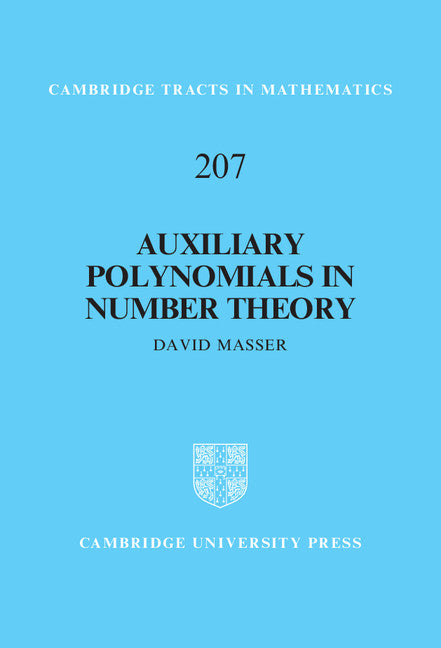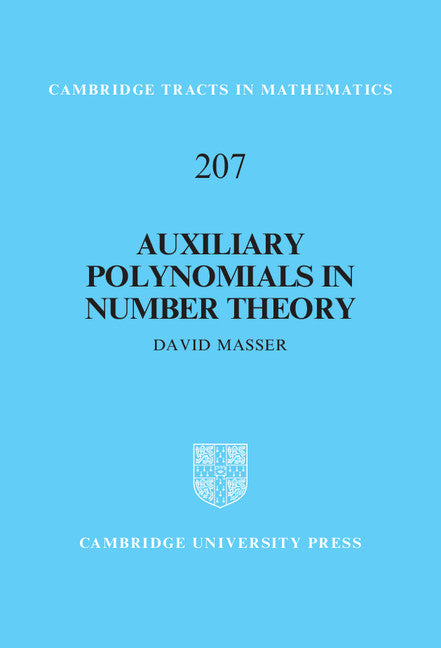Freshly Printed - allow 8 days lead
Couldn't load pickup availability
Auxiliary Polynomials in Number Theory
A unified account of a powerful classical method, illustrated by applications in number theory. Aimed at graduates and professionals.
David Masser (Author)
9781107061576, Cambridge University Press
Hardback, published 21 July 2016
368 pages, 700 exercises
23.6 x 15.8 x 2.8 cm, 0.7 kg
'Instead of aiming for a polished presentation the author usually starts each chapter with simple examples and insights. This is one the book's most attractive features and could well entice students into studying the material covered.' C. Baxa, Monatshefte für Mathematik
This unified account of various aspects of a powerful classical method, easy to understand in its simplest forms, is illustrated by applications in several areas of number theory. As well as including diophantine approximation and transcendence, which were mainly responsible for its invention, the author places the method in a broader context by exploring its application in other areas, such as exponential sums and counting problems in both finite fields and the field of rationals. Throughout the book, the method is explained in a 'molecular' fashion, where key ideas are introduced independently. Each application is the most elementary significant example of its kind and appears with detailed references to subsequent developments, making it accessible to advanced undergraduates as well as postgraduate students in number theory or related areas. It provides over 700 exercises both guiding and challenging, while the broad array of applications should interest professionals in fields from number theory to algebraic geometry.
Introduction
1. Prologue
2. Irrationality I
3. Irrationality II - Mahler's method
4. Diophantine equations - Runge's method
5. Irreducibility
6. Elliptic curves - Stepanov's method
7. Exponential sums
8. Irrationality measures I - Mahler
9. Integer-valued entire functions I - Pólya
10. Integer-valued entire functions II - Gramain
11. Transcendence I - Mahler
12. Irrationality measures II - Thue
13. Transcendence II - Hermite–Lindemann
14. Heights
15. Equidistribution - Bilu
16. Height lower bounds - Dobrowolski
17. Height upper bounds
18. Counting - Bombieri–Pila
19. Transcendence III - Gelfond–Schneider–Lang
20. Elliptic functions
21. Modular functions
22. Algebraic independence
Appendix: Néron's square root
References
Index.
Subject Areas: Algebraic geometry [PBMW], Number theory [PBH]


